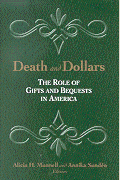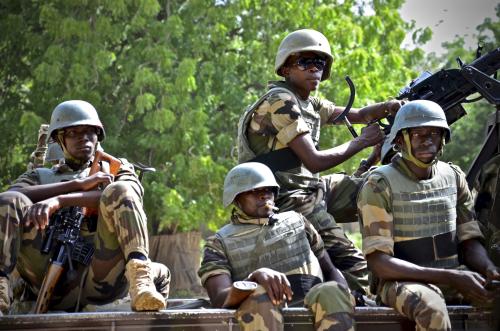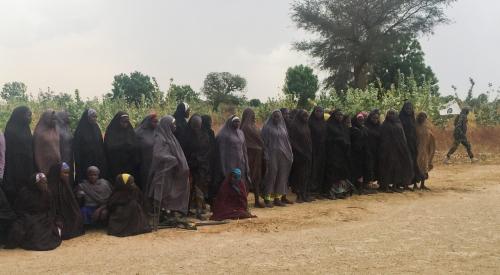Insecurity—across a range of measures, including human insecurity in conflict and food insecurity—is intensifying across swaths of Africa, including particularly in conflict zones such as Nigeria, Sudan, and Somalia.
On May 19, the Africa Security Initiative of the Center for 21st Century Security and Intelligence at Brookings hosted a discussion on conflict, famine, and security issues in Africa today, moderated by Senior Fellow Michael O’Hanlon.
Karen Attiah of the Washington Post opened with an overview of the situation in Nigeria, where an estimated five million people face acute food shortages and famine is an increasingly dire concern. The food crisis is further compounded by the presence of Boko Haram, a Nigeria-based militant Islamist group. In fact, the famine is hitting that group as well, Attiah explained, and has prompted it to raid towns when humanitarian assistance arrives.
Meanwhile, only 1.8 percent of the global call for funding—based on what experts think is needed—has been met. Beyond the lack of aid, Attiah highlighted challenges related to migration and displacement. Data is critical to managing the flows of people, she said, but it is “difficult to get a hold on even just accurate numbers,” she said, adding that migration complicates disease control, as well.
Kristin McKie of St. Lawrence University added that much like Nigeria, Somalia also has to deal with Islamist militancy in addition to drought and famine. During the 2011 to 2012 famine, al-Shabab—the primary militant group in that country—successfully kept humanitarian organizations away, but wasn’t able to fill the gap. This created a “backlash against al-Shabaab among the populations that were living in the area that they controlled,” according to McKie. So using food as a weapon didn’t serve al-Shabab well, McKie said, and the group seems to have learned from that.
McKie noted that many international organizations have begun offering more than just food. A particularly promising development has been the use of cash transfers and voucher programs. These approaches “offer greater choice” and “support local farmers and local suppliers,” said McKie.
Comfort Ero of the International Crisis Group emphasized the complexity of all these issues. Ero noted that the continent’s largest conflicts are bleeding together. In Nigeria and Lake Chad, a conflict between Boko Haram and the Nigerian military has spilled over into surrounding countries. Though underreported, the conflict is one of the world’s greatest humanitarian crises at present, with nearly 20 million in the impact zone, and it threatens to get worse. Ero advocated for a greater civilian dimension to multinational efforts in these conflicts, observing a problematic predilection toward military responses to crisis—an issue that extends beyond Africa.
The Brookings Institution is committed to quality, independence, and impact.
We are supported by a diverse array of funders. In line with our values and policies, each Brookings publication represents the sole views of its author(s).









Commentary
Experts offer ideas for dealing with insecurity in Africa
May 25, 2017